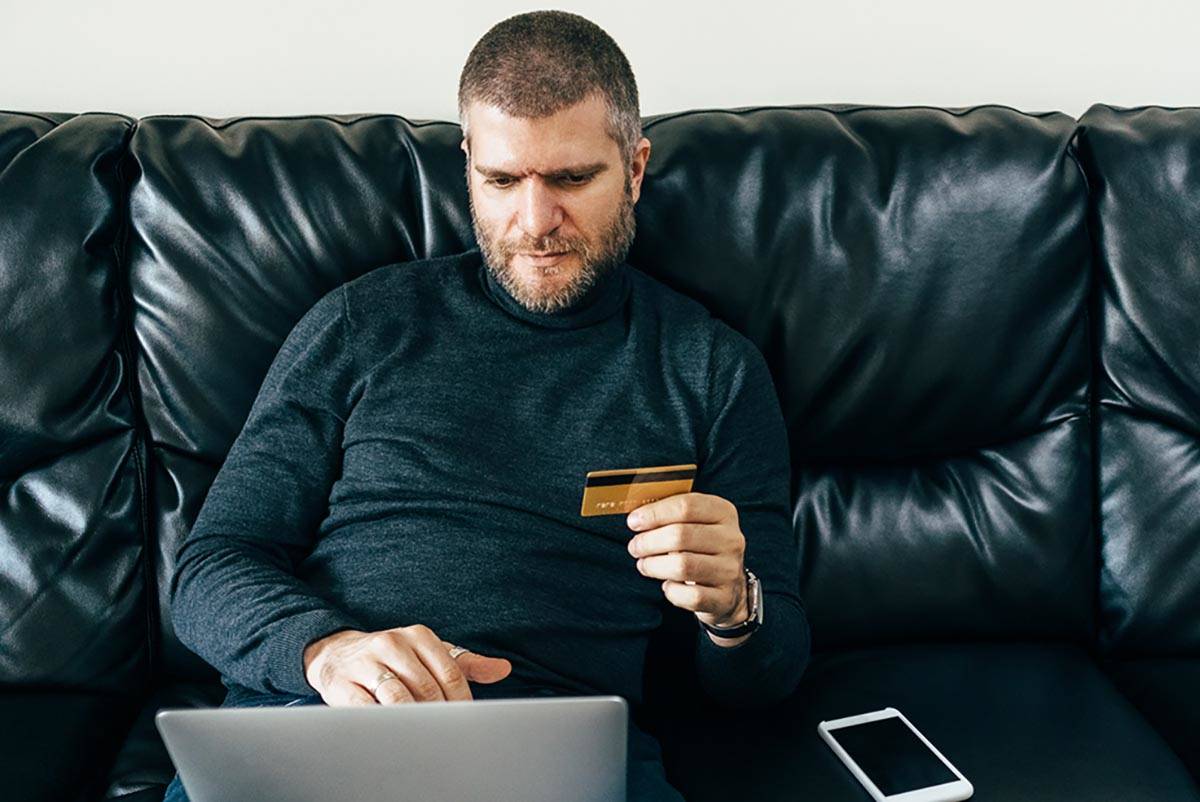6 reasons why it’s so difficult to get out of debt
Getting out of debt isn’t easy. It requires a lifestyle shift. Sometimes, you have to make a small change in the way you handle your finances — and sometimes a big one.
If your New Year’s resolution for 2021 was focused on getting out of debt, you may not have made much headway. This past year has been financially devastating for many families; and despite some assistance from the federal government, the Democrat-Republican congressional divide has slowed up stimulus for individuals and businesses alike.
Find out: What not to do while trying to get out of debt
To get some additional insight on why you haven’t gotten out of debt by now, take a look at these reasons why it’s so difficult. Plus, learn what you can do to start conquering your debt once and for all.
1. You don’t have a budget
Not having a budget is a sure way to keep yourself in debt. It’s important to assign each dollar you earn to a specific category, including debt, and then account for every dollar you spend.
Many different budget plans exist, including the 50/30/20 rule. When using this budget, you put 50% of your income toward your necessities, such as rent, car payments, insurance, utilities and food. Next, 30% goes toward things you want, such as eating out, streaming services and new shoes. The remaining 20% goes into savings and paying off debt.
If you’re determined to pay off your debt as soon as possible, you may want to play with the percentages a bit. For instance, consider putting 30% or 40% toward your savings and debt and leaving only 10% for things you want but don’t need.
Budgeting 101: How to create a budget you can live with
2. You only make minimum payments

While it’s understandable that you may be struggling to survive financially right now, here’s an idea to consider when things become a bit easier.
To make a dent in your credit card debt, try the avalanche method. If you have more than one credit card, pick the one that has the highest balance or the highest interest rate — or both — and put as much money as possible toward it while paying the minimum payments on your other cards. Then, once you pay off that debt, tackle the one that has the next highest balance or interest and so on.
Related: Tips to get your mortgage payments as low as possible
3. You make impulse purchases
If you’ve ever let your emotions rule you, you’ve probably made an impulse buy at one time or another. But you can avoid caving at the sight of the newest kitchen gadget or state-of-the-art phone. Here’s how.
Always make a shopping list at home before heading out to the grocery store or on other errands to help avoid impulse spending. Also, avoid shopping online without a purpose.
Don’t take your credit cards with you on shopping trips because they are too easy to swipe in a moment of weakness. Instead, use cash, which is tangible, and allows you to realize you don’t necessarily have the funds to support your impulse.
Another way to keep yourself from making spontaneous purchases is to make a rule that you have to wait a certain period of time before you can take action on something you want to buy. For example, make yourself wait 30 minutes, until the next day or even a full week when you have an impulse.
Sometimes, by waiting, you’ll realize that the purchase you were so intent upon isn’t necessary.
Find out: Online shopping secrets Amazon and other retailers don’t want you to know
4. Your significant other isn’t on the same page
If you and your significant other don’t make time for regular conversations about money, you may not be on the same page, which can result in debt.
To get control of your debt, both of you need to agree on a budget and stick to it. Plus, a discussion about financial goals, putting those goals into action and revisiting those goals periodically needs to be part of your financial lifestyle.
If you find it difficult to sit down and hash out money matters together, consider meeting with a financial advisor who can help you both sort out your finances and make a plan of action.
Read More: The No. 1 financial deal breaker for couples in every state
5. Keeping up appearances takes priority
Feeling under pressure to compete with your friends on social media or your next-door neighbors is nothing new, but it can land you in some serious debt. Rather than allow yourself to be led by the temptation to keep up, here are some alternative options.
Take a few minutes each day to be thankful for what you have and find value in things that you may be overlooking.
Severely limit your time on social media if you tend to feel envious or anxious about what others are buying or doing. And if there’s someone that really gets under your skin with their “look at me” posts, simply unfollow them.
Revamp your budget and set some new financial goals to help you feel good about your financial decisions and give you a sense of control.
The Ultimate Financial Planning Guide: Do it like the pros in 6 steps

6. Your student loan debt is crippling you
Americans owed over $1.7 trillion in student loan debt as of the third quarter of 2020, according to Federal Reserve Data. And that amount is not shrinking.
If you have to put a big part of your monthly paycheck toward your student loans, it can be hard to find the money to pay off other debt.
While President Joe Biden’s plan would forgive up to $50,000 worth of student loan debt per borrower, that doesn’t mean it will happen. Here are some things you can do in the meantime.
If you’re able to, get a job in the public sector that will qualify you for Public Service Loan Forgiveness after 120 qualifying payments. Then, if your income is low enough, you can apply for an income-driven repayment plan that will allow you to make much smaller payments than you would normally be required to make.
Note that no matter what type of job you have, if your income is low enough, you can qualify for an IDR plan.
Another option if regular student loan payments are too high is to apply for a forbearance. A forbearance allows you to push pause on your student loan payments or reduce them temporarily. However, interest will continue to accrue on your loans and will be added to the balance at the end of the forbearance. You may want to consider paying the interest if possible.
More From GOBankingRates
How long $1 million in savings will last in every state
27 ugly truths about retirement
This article originally appeared on GOBankingRates.com: 6 reasons why it’s so hard to get out of debt






















